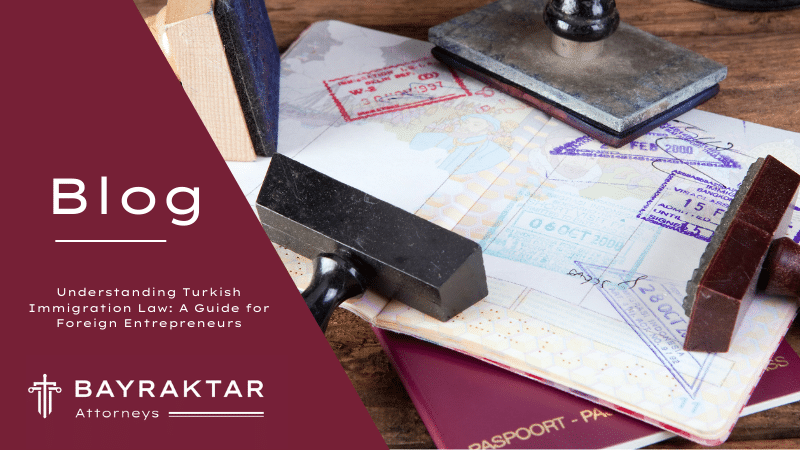
Understanding Turkish Immigration Law: A Guide for Foreign Entrepreneurs
Turkey is a country that has become increasingly attractive to foreign entrepreneurs in recent years. With its rapidly growing economy, strategic location, and favorable business climate, many foreign entrepreneurs are eager to start businesses and invest in Turkey. However, navigating Turkish immigration law can be complex, and it’s important for foreign entrepreneurs to understand the requirements and processes involved in obtaining the necessary visas and permits to live and work in Turkey.
Below, I’ll provide a comprehensive guide to Turkish immigration law for foreign entrepreneurs, including information on the most common types of visas, the application process, and important legal considerations.
Types of Visas in Turkey
There are several types of visas available for foreign entrepreneurs seeking to live and work in Turkey. The most common types include:
- Work Visa in Turkey: This visa is issued to foreign nationals who have been offered employment in Turkey. To obtain a work visa, the foreign national must provide documentation demonstrating that they have a job offer from a Turkish employer, as well as evidence of their qualifications and work experience.
- Investment Visa in Turkey: This visa is issued to foreign entrepreneurs who are investing in Turkey. To obtain an investment visa, the foreign entrepreneur must provide documentation demonstrating that they have made a significant investment in Turkey, such as by establishing a business or purchasing real property.
- Student Visa in Turkey: This visa is issued to foreign nationals who are enrolled in a Turkish educational institution. To obtain a student visa, the foreign national must provide documentation demonstrating that they have been accepted to a Turkish educational institution and that they have the financial means to support themselves during their stay in Turkey.
Application Process
The application process for obtaining a visa in Turkey can be time-consuming and complex. To apply for a visa, foreign entrepreneurs must submit an application to the Turkish embassy or consulate in their home country. The application must include a variety of supporting documents, such as a passport, a letter of invitation or job offer, and proof of financial resources.
Once the application is submitted, it can take several weeks or months for the visa to be processed. During this time, the foreign entrepreneur may be required to undergo a medical examination and provide additional documentation as requested by Turkish immigration officials.
Legal Considerations
Foreign entrepreneurs who are seeking to invest in Turkey should be aware of several important legal considerations. These include:
- Company Formation: Foreign entrepreneurs starting a business in Turkey must follow the legal requirements for company formation, which can be complex. This may involve working with a local attorney or accountant to ensure that all legal requirements are met.
- Taxation: Foreign entrepreneurs must be aware of their tax obligations in Turkey, including income tax, corporate tax, and value-added tax (VAT). Again, working with a local accountant or attorney can be helpful in navigating these requirements.
- Employment Law: Foreign entrepreneurs who are hiring employees in Turkey must follow the requirements of Turkish employment law, including minimum wage requirements, working hours, and other labor standards.
Conclusion
Navigating Turkish immigration law can be complex, but with the right guidance and support, foreign entrepreneurs can successfully obtain the visas and permits they need to live and work in Turkey. By understanding the types of visas available, the application process, and important legal considerations, foreign entrepreneurs can be well-prepared to take advantage of the many opportunities that Turkey has to offer. If you need further guidance or support, don’t hesitate to reach out to our experienced team of immigration and business law attorneys.







